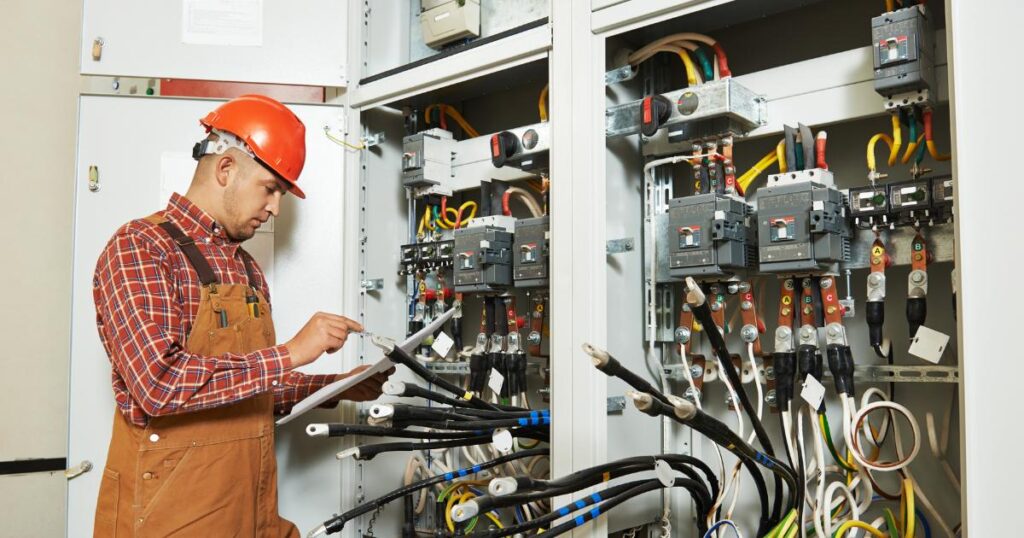
Industrial electricians are skilled professionals responsible for installing, maintaining, and repairing electrical systems in industrial settings. From manufacturing plants to construction sites, their expertise is crucial for ensuring the safe and efficient operation of machinery and equipment. In this article, we’ll delve into the world of industrial electricians, exploring their roles, qualifications, challenges, and future prospects.
Introduction to Industrial Electricians
Industrial electricians play a vital role in various industries, including manufacturing, construction, and mining. They are tasked with installing, maintaining, and repairing electrical components and systems to ensure the smooth functioning of industrial machinery and equipment. Unlike residential or commercial electricians, industrial electricians work in environments with unique challenges and safety regulations.
Importance of Industrial Electricians
The work of industrial electricians is indispensable for maintaining productivity and safety in industrial facilities. They are responsible for troubleshooting electrical issues, performing preventive maintenance, and ensuring compliance with regulatory standards. Without skilled industrial electricians, businesses risk downtime, safety hazards, and costly repairs.
Qualifications and Training Required
Becoming an industrial electrician typically requires completing a formal apprenticeship program, which combines classroom instruction with on-the-job training. Most apprenticeships last four to five years and are sponsored by trade unions or employers. Additionally, industrial electricians must obtain state licensure and certification to work legally in their respective jurisdictions.
Skills Needed for Industrial Electricians
Industrial electricians need a diverse set of skills to excel in their profession. Besides technical proficiency in electrical systems, they must possess problem-solving abilities, attention to detail, and strong communication skills. Additionally, familiarity with industry-specific regulations and safety protocols is essential for ensuring compliance and minimizing risks.
Types of Industrial Electrical Work
Industrial electricians work on a wide range of electrical systems and equipment, including motors, generators, control panels, and lighting fixtures. They may also be involved in the installation of power distribution systems, wiring, and instrumentation. Some specialize in specific industries such as manufacturing, oil and gas, or renewable energy.
Safety Regulations and Practices
Safety is paramount in industrial electrical work due to the high voltage and hazardous environments involved. Industrial electricians must adhere to strict safety regulations, such as wearing personal protective equipment (PPE), conducting risk assessments, and following lockout/tagout procedures. Regular safety training and awareness are essential for preventing accidents and injuries.
Tools and Equipment Used by Industrial Electricians
Industrial electricians use a variety of tools and equipment to perform their duties efficiently. These may include multimeters, voltage testers, wire strippers, conduit benders, and power drills. Additionally, specialized tools such as infrared thermometers and oscilloscopes are used for troubleshooting and diagnostics.
Challenges Faced by Industrial Electricians
Industrial electricians encounter numerous challenges in their line of work, including tight deadlines, complex machinery, and adverse working conditions. They must adapt to changing technologies and industry standards while ensuring uninterrupted operations. Moreover, troubleshooting electrical issues can be time-consuming and require creative problem-solving skills.
Career Opportunities and Growth
The demand for industrial electricians remains strong, driven by ongoing industrialization and infrastructure development. Experienced electricians may advance to supervisory or managerial roles, overseeing teams of technicians and coordinating electrical projects. Furthermore, opportunities for specialization in areas such as automation and renewable energy are emerging.
Cost of Hiring Industrial Electricians
The cost of hiring industrial electricians varies depending on factors such as experience, location, and scope of work. Hourly rates typically range from $30 to $50 per hour, with additional charges for emergency services or overtime. However, investing in skilled electricians can result in long-term cost savings by reducing downtime and maintenance expenses.
Tips for Hiring Industrial Electricians
When hiring industrial electricians, it’s essential to verify their credentials, experience, and licensure. Requesting references and conducting background checks can help ensure reliability and professionalism. Additionally, prioritize communication and transparency to establish clear expectations and timelines for the project.
Future Trends in Industrial Electrical Work
The future of industrial electrical work is shaped by advancements in automation, renewable energy, and digitalization. Industrial electricians will need to adapt to new technologies such as smart grids, energy storage systems, and industrial robotics. Continuous learning and upskilling will be essential for staying competitive in the evolving job market.
Case Studies of Successful Industrial Electricians
To illustrate the impact of industrial electricians, we’ll explore real-life case studies of projects where their expertise made a difference. From resolving critical electrical faults to implementing energy-efficient solutions, these examples highlight the importance of skilled professionals in industrial settings.
Why choose Master Drain as an industrial electrician?
Master Drain is well known for plumbing, drain unblocking as well as electrical service throughout Birmingham UK. If you need any service related to industrial electrical service contact Master Drain Ltd.
Conclusion
Industrial electricians play a crucial role in ensuring the safety, efficiency, and reliability of electrical systems in industrial environments. With their expertise and dedication, they contribute to the smooth operation of machinery, the protection of workers, and the optimization of energy usage. As industries evolve, the demand for skilled industrial electricians will continue to grow, offering promising career opportunities for aspiring professionals.
FAQs
What does Master Drains do as an industrial electrician?
Industrial electricians install, maintain, and repair electrical systems in industrial settings, ensuring the safe and efficient operation of machinery and equipment.
How long does it take to become an industrial electrician?
Becoming an industrial electrician typically requires completing a formal apprenticeship program lasting four to five years, followed by state licensure and certification.
What are the common challenges faced by industrial electricians?
Industrial electricians often face challenges such as tight deadlines, complex machinery, and adverse working conditions. Troubleshooting electrical issues and ensuring safety are also significant concerns.
How much does it cost to hire an industrial electrician?
The cost of hiring an industrial electrician varies depending on factors such as experience, location, and scope of work. Hourly rates typically range from $30 to $50 per hour.
